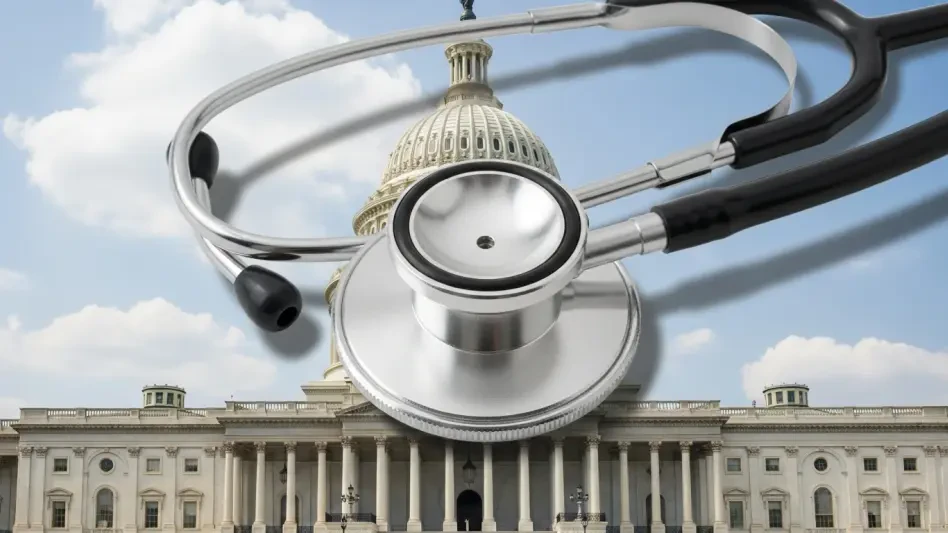The staggering reality of health care in the United States hits hard when considering that millions of Americans still struggle to afford basic medical services, despite years of policy debates and reforms, igniting a firestorm of public frustration with countless voices rising to demand accountability and change from lawmakers. This roundup article compiles diverse opinions, personal experiences, and innovative ideas from readers across the nation, aiming to shed light on the depth of the health care crisis. By exploring a range of perspectives, from disillusionment with political inaction to grassroots proposals for reform, the goal is to capture the urgency of the issue and highlight potential paths forward.
Public Outcry Over the Health Care Crisis
Frustration with Congressional Gridlock
A significant portion of public sentiment focuses on exasperation with Congress for failing to prioritize health care over partisan disputes. Many readers express anger over recurring threats to critical programs like the Affordable Care Act (ACA), especially the potential loss of enhanced subsidies that have made coverage accessible for low-income families. This frustration is compounded by events like prolonged government shutdowns, which disrupt vital health services and expose the lack of serious negotiation among federal leaders.
The debate over political responsibility remains heated, with some arguing that health care has become a mere tool for political leverage rather than a genuine policy priority. Voices from across the political spectrum highlight a shared belief that elected officials must move beyond rhetoric to deliver tangible solutions. The consensus points to a systemic failure where partisan bickering overshadows the pressing needs of citizens struggling to access care.
This disillusionment underscores a broader call for accountability, with many insisting that lawmakers should be held responsible for the human cost of their inaction. The sentiment is clear: health care cannot continue to be a bargaining chip in political games, and federal leadership must step up to address the crisis with urgency and sincerity.
Personal Struggles in a Broken System
Beyond political critiques, the personal toll of the health care system’s shortcomings emerges as a heartbreaking theme. Stories abound of individuals facing illegal billing practices, even when covered by programs like Medicaid, leading to unexpected financial burdens. These accounts reveal a harsh reality where bureaucratic errors and exploitative practices can devastate families, regardless of their insurance status.
The ripple effects of such systemic gaps are profound, often leaving individuals vulnerable to exploitation by providers due to a lack of awareness or resources to fight back. For many, the struggle is not just about accessing care but also about navigating a maze of hidden costs and administrative hurdles that erode trust in the system. These personal hardships paint a vivid picture of a structure that fails to protect its most vulnerable.
Compounding the issue is the emotional strain of battling for fair treatment, with countless Americans feeling abandoned by a system meant to support them. The recurring theme in these narratives is the desperate need for stronger consumer protections to prevent financial ruin and ensure that coverage translates into actual care rather than added stress.
Innovative Ideas and Localized Approaches
County-Level Funding: A Temporary Fix?
Amid federal inaction, some readers propose localized solutions like county-level health taxes to bridge funding gaps for health care services. These initiatives are often seen as emergency measures to sustain community health centers in the face of dwindling national support. However, opinions vary on whether such approaches offer a viable long-term strategy or merely serve as a stopgap.
Disparities between urban and rural areas highlight the limitations of localized funding, with wealthier counties able to support robust health programs while poorer regions struggle to provide even basic care. For instance, comparisons between densely populated urban hubs and remote rural counties in states like Nevada reveal stark inequities in access driven by local economic conditions. This uneven distribution raises alarms about creating a fragmented system where care depends on geography.
Critics warn of the risk of “health care feudalism,” where reliance on local wealth erodes national standards and normalizes federal neglect. While some see these taxes as a pragmatic response to immediate needs, others argue they deepen systemic inequality, urging a return to unified national policies to ensure equitable access for all Americans.
Personal Tactics and Media Influence
On an individual level, many are adopting creative strategies to navigate the flawed health care landscape, such as opting for self-pay methods to avoid inflated hospital costs. This trend reflects a growing distrust in traditional insurance models, with some readers highlighting significant savings by bypassing conventional payment structures for routine medical needs.
Meanwhile, the role of investigative journalism in driving reform garners praise, with past exposés on hidden industry flaws credited for sparking meaningful changes. Reports that uncover systemic issues, such as undisclosed adverse events in medical devices, have pushed for greater transparency and accountability within the health sector. These efforts demonstrate the power of informed public discourse in influencing policy and practice.
The combination of personal resilience and media-driven accountability offers a potential blueprint for future advocacy. Some suggest that amplifying individual stories through credible reporting could pressure policymakers to act, while others emphasize the importance of sustained public engagement to keep health care reform at the forefront of national priorities.
Key Takeaways and Paths Forward
Reflecting on these varied perspectives, core concerns emerge: the failure of Congress to act decisively, the crushing financial burdens on individuals, the inequity of localized funding, and the urgent need for transparency across the system. These issues resonate as shared challenges that demand comprehensive solutions rather than piecemeal fixes. The diversity of opinions underscores the complexity of the crisis but also the collective resolve to seek change.
Practical steps for progress include advocating for robust consumer protections to shield against exploitative practices and supporting enhancements to the ACA to broaden access. Additionally, pushing for unified national health policies could counteract the disparities created by localized funding, ensuring that care is not dictated by zip code or economic status. These actionable ideas provide a starting point for meaningful reform.
Engagement remains crucial, with many voices encouraging direct outreach to representatives to demand accountability. Staying informed through reliable journalism and sharing personal health care experiences can further amplify public pressure on lawmakers. These steps, grounded in the insights from diverse readers, offer a roadmap for building a system that truly serves all.
Reflecting on the Collective Voice
Looking back, the outpouring of frustration and ingenuity from readers paints a vivid portrait of a nation grappling with a deeply flawed health care system. Their critiques of political inaction and personal accounts of hardship underscore the urgent need for systemic overhaul. The exploration of localized funding and individual strategies reveals both the resilience and the limitations of current approaches to addressing the crisis.
Moving forward, a critical next step lies in harnessing this collective energy to demand comprehensive national reform that prioritizes health care as a fundamental right. Building coalitions across communities to advocate for equitable policies can sustain momentum, while leveraging media platforms to highlight ongoing inequities can keep the issue in the public eye. These actions, inspired by the voices shared, pave the way for a future where access to care is no longer a privilege but a guarantee for every American.









